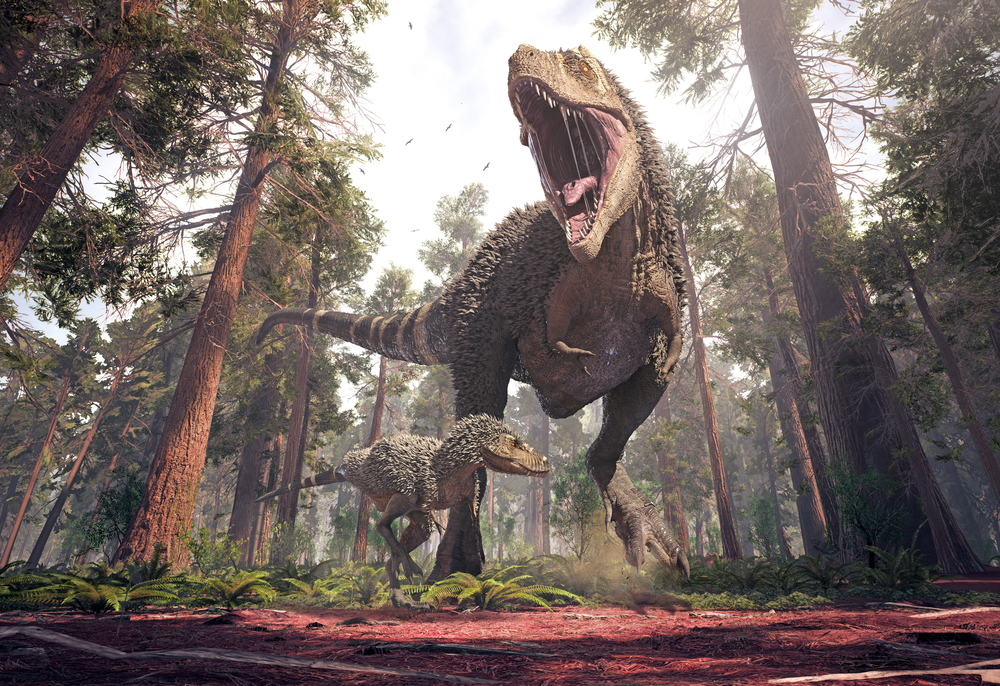Scientists use modern species to discover genome structure of dinosaurs
A team of leading researchers have determined the genome structure of some of the world’s most popular dinosaurs (including the Velociraptor and the T-Rex), using ground-breaking new biotechnological research methods.

The project, conducted by a team of researchers from the Royal Veterinary College (RVC) and other leading academic institutions, compared the genomes of modern species known to have descended from dinosaurs (birds) with other reptiles (turtles) to determine the genome structure of a shared common ancestor; the ‘Eunotosaurus’. The ‘Eunotosaurus’ is a reptile which lived around 260 million years ago, crucially 20 million years before dinosaurs first emerged.
The researchers compared the genetic knowledge of the species that have derived from dinosaurs to extrapolate what the chromosomes for specific dinosaurs would look like. As a result, the team were able to use their findings to determine the similarity of the chromosome structures between dinosaurs and modern species, such as ostriches.
Dr Denis Larkin, Reader in Comparative Genomics, at the RVC, said: “It is fascinating to see how the knowledge we collect about extant species’ genomes coupled with smart computation technologies allow us to go back in time and learn about the genomes and biology of species that existed long before humans appeared and for which we would never have a biological sample”.
Darren Griffin, Professor of Genetics at University of Kent, said: “Everyone loves dinosaurs, even the most hardened cellular geneticists (like my team). We’ve been intensely scrutinising the chromosomal similarities of many species for a while now, and we are extremely excited that our research has been able to contribute towards the knowledge of genome of dinosaurs.”
Reconstruction of genome organization in the diapsid common ancestor permits tracing of chromosome evolution in avian and non-avian dinosaurs is published in Nature Communications.
Notes to Editors
For more information please contact: Uche Graves or Alex Cassells / Press Line: 0800 368 9520
About the Royal Veterinary College
- The Royal Veterinary College (RVC) is the UK's largest and longest established independent veterinary school, and is a constituent College of the federation of the University of London.
- The RVC offers undergraduate, postgraduate and CPD programmes in veterinary medicine, veterinary nursing and biological sciences, being ranked third worldwide for veterinary medicine and in the top 10 universities nationally for biosciences degrees.
- It is currently the only veterinary school in the world to hold full accreditation from AVMA, EAEVE, RCVS and AVBC.
- In 2017, the RVC received a Gold award from the Teaching Excellence Framework (TEF) – the highest rating a university can receive.
- A research-led institution, in the most recent Research Excellence Framework (REF2014) the RVC was ranked as the top vet school in the Agriculture, Veterinary and Food Science unit of assessment, with 79% of submitted academics producing world-class or internationally excellent research.
- The RVC also provides animal owners and the veterinary profession with access to expert veterinary care and advice through its teaching hospitals; the Beaumont Sainsbury Animal Hospital in central London, the Queen Mother Hospital for Animals (Europe's largest small animal referral centre), the Equine Referral Hospital, and the Farm Animal Clinical Centre located at the Hertfordshire campus.
- www.rvc.ac.uk

